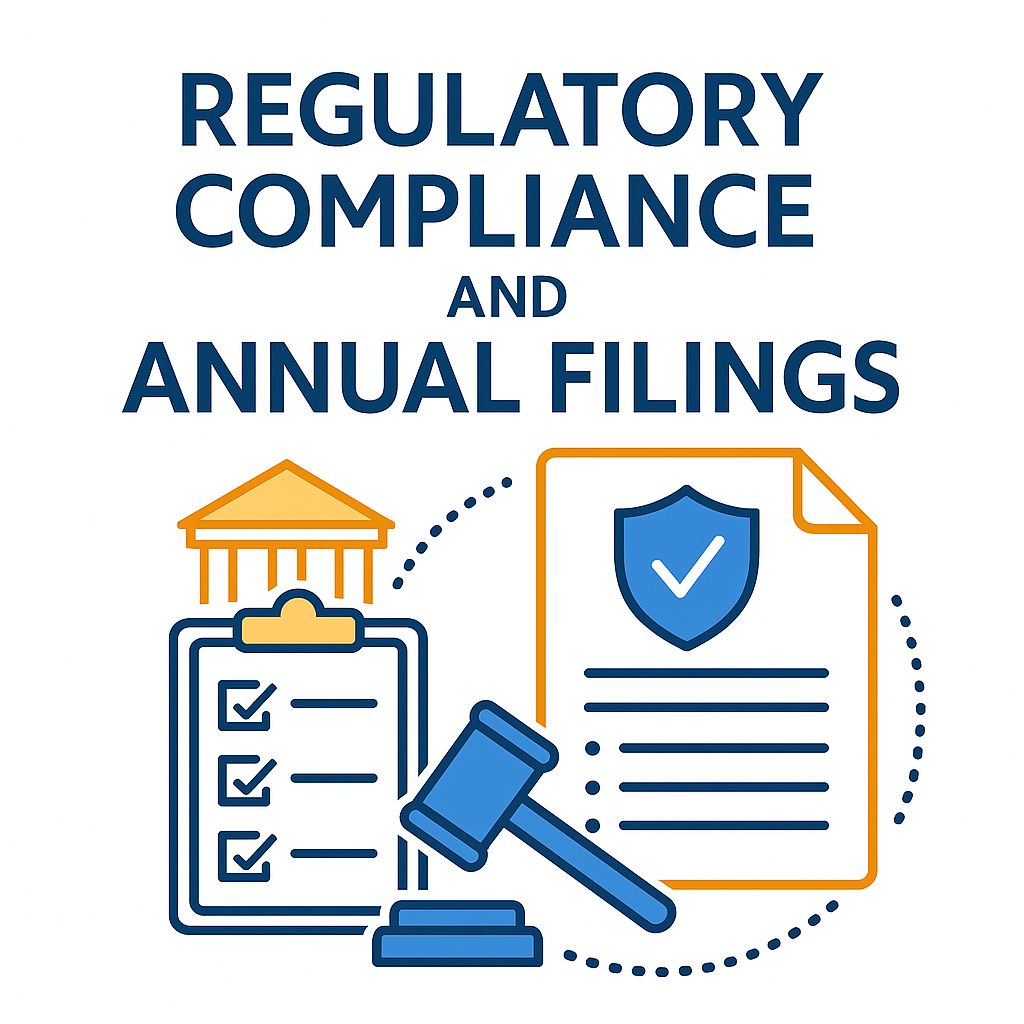Introduction
Staying compliant with ever-evolving regulatory requirements is crucial for every business—whether you’re a startup or a growing enterprise. From annual filings to meeting deadlines outlined in your business compliance checklist, failing to comply can result in heavy penalties, legal actions, or even shutdowns. This guide breaks down everything you need to know about regulatory compliance, legal obligations for businesses, and how to build a reliable compliance calendar that keeps your operations running smoothly.
Why Regulatory Compliance Matters
Businesses today operate in a complex legal environment. Regulatory compliance ensures your business is aligned with applicable laws and standards related to taxation, labor, environmental policies, and data protection. Proper compliance:
-
Avoids fines and legal action
-
Builds trust with investors, clients, and regulators
-
Protects the business’s reputation
-
Prepares the company for audits and due diligence
-
Enables smooth funding and acquisition processes
Common Types of Compliance for Businesses
-
Business Registration and Licensing
-
Register with ROC (Registrar of Companies) or relevant local authorities
-
Acquire industry-specific licenses (FSSAI, GST, MSME, etc.)
-
-
Tax Compliance
-
Timely filing of GST, TDS, and income tax returns
-
Regular reconciliation of accounts
(Read more: Tax Compliance Tips for Startups)
-
-
Employment and Labor Law Compliance
-
Maintain employee records, PF, ESI, gratuity, etc.
-
Follow minimum wage laws, sexual harassment policies, and labor contracts
-
-
Cybersecurity and Data Protection
-
Adhere to data privacy laws like GDPR or India’s DPDP Act
(Also read: Cybersecurity Compliance for Startups)
-
-
Environmental Compliance
-
Applicable for industries with environmental impact; needs clearances from Pollution Control Boards
-
Annual Filings Every Business Must Do
Every registered company—whether a private limited, LLP, or OPC—must comply with annual filing requirements as per MCA (Ministry of Corporate Affairs) in India.
✅ For Private Limited Companies:
| Document | Description | Due Date |
|---|---|---|
| AOC-4 | Financial Statements | Within 30 days of AGM |
| MGT-7 | Annual Return | Within 60 days of AGM |
| DIR-3 KYC | Director KYC | 30th September (annually) |
✅ For LLPs:
| Document | Description | Due Date |
|---|---|---|
| Form 8 | Statement of Account & Solvency | 30th October |
| Form 11 | Annual Return | 30th May |
These are just part of your compliance calendar and missing them can attract penalties for non-compliance.
Penalties for Non-Compliance
Failure to meet your legal obligations for businesses can result in:
-
₹100 per day for each missed filing (as per MCA norms)
-
Disqualification of directors
-
Freezing of bank accounts
-
Legal notices and prosecution in serious cases
This is why many startups appoint a CS or CA early to manage their regulatory compliance efficiently.
How to Stay Compliant: A Startup Compliance Guide
Here’s a quick business compliance checklist you can follow:
✅ Register your business properly
✅ Maintain a compliance calendar
✅ File taxes and annual returns on time
✅ Keep accurate records
✅ Stay updated on regulatory changes
✅ Hire a legal or financial advisor
✅ Conduct regular internal audits
For more on early-stage business operations, check out our post: From Idea to Unicorn: Mastering Startup Scalability
Bonus: Tools and Resources to Simplify Compliance
-
IndiaFilings, Vakilsearch, and ClearTax: Services for ROC filing and annual compliance
-
Google Calendar + Compliance Tracker: Set up reminders for deadlines
-
Accounting Software: Tally, Zoho Books, or QuickBooks for automated GST and TDS tracking

